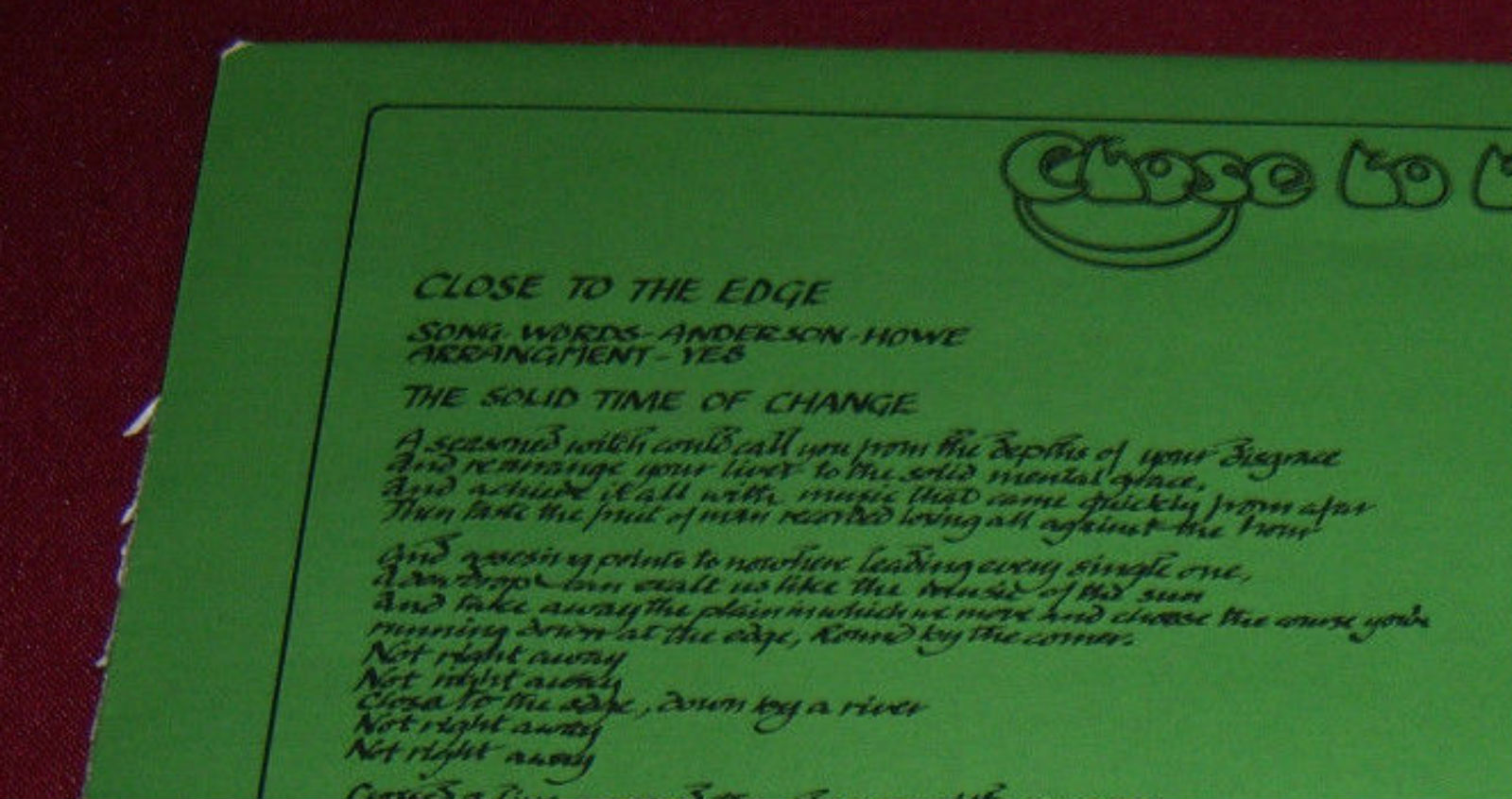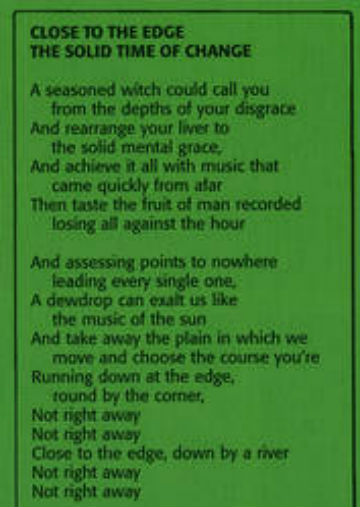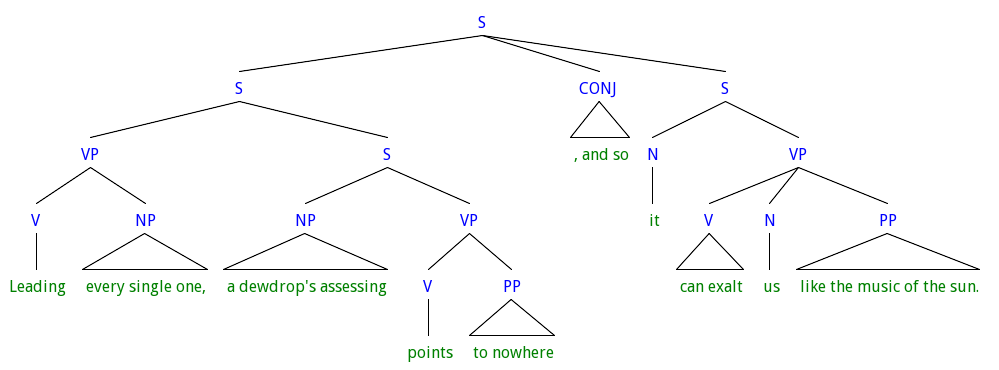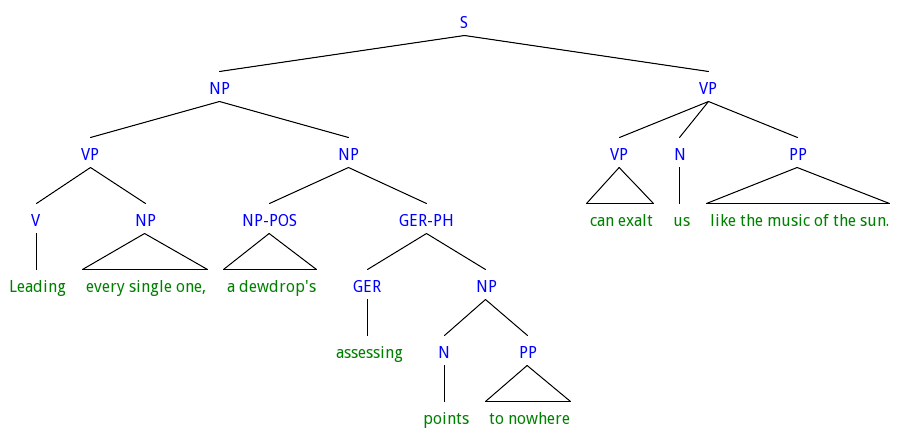The following are the supporting grammatical, linguistic, and context details as requested by the OP. There is a Summary at the end.
1. "Loyalty Points to Nowhere"
Generally speaking, points can be interpreted as either a noun or a verb. On its own, the title is ambiguous. In cases of ambiguity, interpretation solely within the mind of the reader/listener, and in a sense, it matters not what the author intended. Both interpretations work to the advantage of the article, as described next.
1.a Points as a Verb
Before reading the article, the verb interpretation is more probable. Before the reader reads the article body, "points" is more easily interpreted as a verb, indicating that the act of loyalty itself is not rewarded.

Labeled Bracket Notation: [S [N Loyalty][VP [V Points][PP^ to nowhere]]] ] (Link)
Meaning: Grammatically, this is similar to "Happiness leads to sadness." Being loyal (loyalty) leads (points) one nowhere. Being loyal is not rewarded. Note that grammatically, the verb-interpretation creates an independent clause so it can be read as a complete sentence.
Editors are keen to watch for double meanings in article titles because they are usually cause for embarrassment. There are famous examples of such, like "Squad Helps Dog Bite Victim". Of course, the squad helped the person who was bitten by a dog, but one can chuckle at the absurd thought of a squad encouraging a dog to bite a victim. On the other hand, a well crafted title or slogan that carries two meanings can be powerful.
Article titles are intended to entice readers to read the article. The idea that "Loyalty itself points ("gets you") nowhere" is just the type of spicy and controversial title that would lead one to click/read such an article. "What!?!? Loyalty leads you nowhere!?!? I take "loyalty" seriously. I don't believe it leads to nowhere! What is this author saying??? I'm going to read this..."
The writer/editor was most likely aware of this clever word play; it's their job to do so. Because this verb-interpretation is much more compelling than the bland noun-interpretation, we can assume the writers would have been quite pleased with the double meaning, whether intentional or not.
1b) Points as a Noun
After reading the article, the noun interpretation becomes immediately apparent. It becomes obvious that the word Points can refer to the "Loyalty Points" reward program, meaning something like you got a "ticket to nowhere".

Labeled Bracket Notation: [NP [NP^ Loyalty Points][PP^ to nowhere]] (Link)
Meaning: "Loyalty Points" are part of a Loyalty Program, and in this article, it refers to Frequent Flyer Miles](http://en.wikipedia.org/wiki/Frequent-flyer_program). This is grammatically similar to "Roads to Nowhere" or "Loyalty Reward Programs to Nowhere". Noun phrases are commonly used for titles of articles and songs, like "10 Tips for Better Health" and "A Day in the Life" (Beatles). Note that a noun phrase is not a complete sentence.
Note however, that the verb interpretation is also supported from the article's overall meaning. In the supermarket example, he is directed to "a very small hidden section in the back of the shop". (That is, he is pointed to nowhere.)
The two alternative interpretations overlap in meaning. This double meaning, intentional or not, complements the article and illustrates the power of a clever word play.
2. "Assessing points to nowhere."
Analysis of the meaning of this song phrase is beyond the scope of ell.stackexchange.1 But we can help the English language learner with the options available based on the grammar and other contextual elements.
First of all, songs are uttered, and in this case, the pace and tone of the sung lyrics has pauses and tonality that places the lyric as the beginning to the verse/stanza/paragraph of lines that follow it.
Secondly, most online lyrics for this song do not properly illustrate the original typography/layout structure, which can lead to inaccurate conjectures. A look at the original written lyrics also indicates this phrase construction belongs with the words/phrases/sentences that follows it, and not with the ones that precede it. The following is a picture of the lyrics from original vinyl album (click to see larger image):

The following is lyrics from the remastered CD insert. It also shows the line as an introduction to a new stanza (in accord with both the original publications as well as the sung lyrics).

Lyrics By Anderson / Howe, (c) 1972 Atlantic Recording Corporation.
The phrase can now be seen as part of a couplet:
Assessing points to nowhere leading every single one,
A dewdrop can exalt us like the music of the sun
We therefore have reason to view this as the following sentence:
- Assessing points to nowhere leading every single one, a dewdrop can exalt us like the music of the sun.
There are many ways to parse this, and very little semantic content to help us narrow it down. (See ERG LOGON Online Demonstrator and try entering the sentence.) But we could we could make two general choices preferring the noun or verb:
Leading every single one, a dewdrop's assessing points(v) to nowhere, and so it can exalt us like the music of the sun.2

Leading every single one, a dewdrop's assessing points-to-nowhere (noun-phrase) can exalt us like the music of the sun.3a 3b 3c

Running the original sentence through the Stanford Parser yields the noun-phrase. Running through ERG LOGON Online Demonstrator yields mostly noun-phrases.
Jon Anderson was writing this in a stream of altered consciousness. The lyric is both rich in imagery and quasi-grammatical, but this is as far as we can take it. Again, the interpretation is completely in the mind of the listener, especially with psychedelic music.
3. Grammar Differences Between Title and Lyrics.
There is a big difference in the grammars of the two phrases. The title of the article stands alone as a complete entity, and may easily be considered either a noun-phrase or a sentence. This generally affords titles more room for ambiguity -- often in an unintentional and undesirable way! In this case, it's quite plausible that the double-meaning of the title was intentional for the sake of attention-grabbing and cleverness.
To illustrate the grammatical difference, consider the same title within a larger context that forces points to be a verb:
- When leadership wants to fire someone and they point to their corporate rules, loyalty points to nowhere.
Unlike the article title, the song lyric is part of a larger grammatical context and does not stand on its own. This can influences a preferred interpretation of points based on how one interprets the context. But since the context is also ambiguous, the meaning of that context still depends on assumptions or associations that the listener makes.
4. Does Ahyh's interpretation respect the grammar of the phrase?
No. Ahyh's interpretation is like an intense trip into his own associations of metaphors and often made without regard to larger grammatical contexts. Each line was interpreted as describing a complete meaning of its own. Sometimes even small phrases or single words have complete meanings to Ahyh, independent of their grammatical role. That doesn't mean he's wrong. But his interpretation does not adhere to the grammar.
Summary/Conclusion
1. 'Points' is most likely interpreted as a verb before reading the article. The concept of "Loyalty Points" becomes obvious after reading the article. The ambiguity serves the article well and was most likely intentional since writers and editors watch for such double meanings in article titles.
2. An analysis of the original lyrics suggests it belongs to the sentence: - "Assessing points to nowhere leading every single one, a dewdrop can exalt us like the music of the sun." Respected online language parsers suggest a preference for a noun interpretation of 'points'. However, the colorful language and intent of the psychedelic music genre defies any single definitive interpretation.
3. Grammar Differences. The title stands on its own as a complete entity interpreted before the article is read. The song lyric is embedded within a larger context of a sentence within the song, and gains meaning from (and lends to) its larger context.
4. Ahyh's interpretation does not follow the grammar of the lyrics; it focuses on small fragments of the lyrics without respect to the overall grammatical context.
Footnotes
The meaning of the song is most likely based on whatever personal impact it has upon the listener. Jon Anderson himself said, "“It’s all metaphors... that’s when I went through that very strong period of just sketching and writing whatever I sang as being a state of consciousness. I would smoke a joint and just have fun and write the lyrics to Close to the Edge." (From "Yes, ‘Close to the Edge’ Turns 40" by Ryan Reed, September 15, 2012 8:51 AM)
Points = Verb. Image rendered by Yoichiro Hasebe's RSyntax Tree. Sorry but I lost the Labeled Bracket Notation for this one! See next one.
3a. Points = Noun. Image rendered by Yoichiro Hasebe's RSyntax Tree.
3b. Here is a link to Mike Shang's Syntax Tree Generator which can run from links. (RSyntaxTree website currently does not support linking, but creates better images.)
3c. Here's the Labeled Bracket Notation:
[S
[NP
[VP
[V Leading]
[NP^ every single one,]
]
[NP
[NP-POS^ a dewdrop's]
[GER-PH
[GER assessing]
[NP^ points to nowhere]
]
]
]
[VP
[V can exalt]
[N us]
[PP^ like the music of the sun.]
]
]






